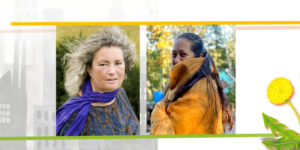On November 12, 13 and 14, the Center for Research on Innovations and Social Transformations (CRITS) will hold its second annual symposium entirely online, entitled “Building A New World in the Shell of the Old to Face Climate Crisis : Between Transition, Resilience and Resilience”.
The issue of climate justice is a crucial theme. The year 2020 has begun with multiple alarm signals related to the environmental crisis, which have manifested themselves all over the globe. These include the ravages caused by forest fires in Australia and more recently in California, the devastating locust invasion in India, and the recent blockades of the Wet’suwet’en community (BC, Canada) against the Coastal GasLink pipeline. The coronavirus pandemic, which has caused a global health crisis, has more than ever revealed the need for a profound transformation in our production and consumption systems. With the post-COVID recovery proposed by the officials, a multitude of social groups are mobilizing to claim that to build the After it is necessary to act in the face of the climate emergency, in order to create a just and resilient world.
To contribute to collective reflection on social and ecological transition strategies, CRITS is offering a two-day conference (November 13 and 14) to which practitioners, researchers, academics, activists and community organizers are invited. In addition, we invite you to a Opening Conference and a Closing multidisciplinary Event (November 12 and 14). In this sense, we wish to open a space for dialogue and knowledge sharing in order to stimulate exchanges around the issues, challenges, obstacles and possible victories of citizen initiatives and collective mobilizations.
Register now!
For the Opening Conference with Starhawk and Christi Belcourt, it’s HERE
For the Symposium, it’s HERE
For the Closing multidisciplinary Event with Valérie Lefebvre Faucher, Ileana Hernandez Camacho et Franklin Lopez, it’s HERE

